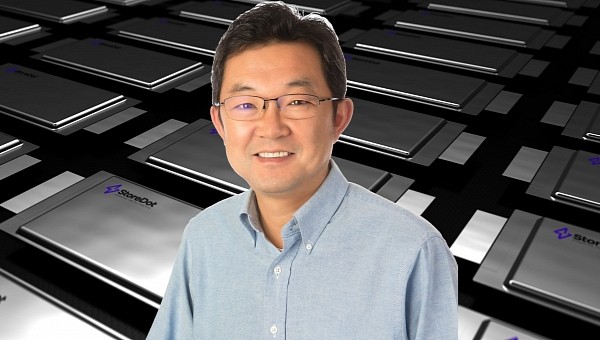StoreDot has quite a lot of targets for the next ten years. By 2024, it wants to start deliveries of its XFC cell 100in5, which will be able to recover 100 miles of charge in five minutes. By 2028, 100in3 semi-solid-state batteries should be available, and 100in2 solid-state cells should arrive in 2032. A research facility in the U.S. should help it reach them.
The new R&D laboratory will be in Irvine, California, a location that was chosen with two objectives. The first one is to seize the world-class local talent pool. QuantumScape and several other battery startups also want these talents in the region. However, StoreDot also wants to be closer to American automakers. Only Tesla makes cars in California, but Lucid and Rivian also have offices there. To reach more traditional American car companies, StoreDot should have established the lab in Michigan.
So far, StoreDot is connected to Volvo Cars, Polestar, Mercedes-Benz, and VinFast. Ola Electric also seems interested in the Israeli startup’s tech, which is curious: the Indian two-wheeler company works with swappable batteries. Anyway, they also need to be charged at the swapping stations where people replace their depleted components. It is probably better if they can do it faster without jeopardizing their lifespans. StoreDot claims to do that with silicon-dominant chemistry that can be used with current battery-making machines.
The new lab will be headed by StoreDot’s global Chief Science Officer (CSO). David Lee and his team will be in close contact with the Israeli startup’s headquarters, which must be already working on the semi-solid-state cells it wants to deliver by 2028. The company said the Californian lab would explore battery material research. That suggests it will either develop materials that StoreDot already thinks are viable for its future cells or that this is yet to be defined with the help of the Irvine facility.
As we have mentioned before, StoreDot may be in hot water when it comes to semi-solid-state and solid-state cells. QuantumScape said it would start delivering its solid-state platform – which is chemistry-agnostic – by 2024 or 2025 at the latest. Japanese carmakers said their cars would start getting solid-state cells in 2028, which is precisely when StoreDot intends to begin selling its semi-solid-state cells.
An excellent example of how late the Israeli startup may be to that party is in China. WeLion claimed to have started production of such cells in November 2022. They will be used in the 150-kWh battery packs NIO will introduce with the EC7, a vehicle expected to arrive next May. In other words, StoreDot promised to offer by 2028 something NIO will start using in a few months. The Israeli startup will have to provide a better solution or a cheaper one to compensate for the five-year delay.
So far, StoreDot is connected to Volvo Cars, Polestar, Mercedes-Benz, and VinFast. Ola Electric also seems interested in the Israeli startup’s tech, which is curious: the Indian two-wheeler company works with swappable batteries. Anyway, they also need to be charged at the swapping stations where people replace their depleted components. It is probably better if they can do it faster without jeopardizing their lifespans. StoreDot claims to do that with silicon-dominant chemistry that can be used with current battery-making machines.
The new lab will be headed by StoreDot’s global Chief Science Officer (CSO). David Lee and his team will be in close contact with the Israeli startup’s headquarters, which must be already working on the semi-solid-state cells it wants to deliver by 2028. The company said the Californian lab would explore battery material research. That suggests it will either develop materials that StoreDot already thinks are viable for its future cells or that this is yet to be defined with the help of the Irvine facility.
As we have mentioned before, StoreDot may be in hot water when it comes to semi-solid-state and solid-state cells. QuantumScape said it would start delivering its solid-state platform – which is chemistry-agnostic – by 2024 or 2025 at the latest. Japanese carmakers said their cars would start getting solid-state cells in 2028, which is precisely when StoreDot intends to begin selling its semi-solid-state cells.
An excellent example of how late the Israeli startup may be to that party is in China. WeLion claimed to have started production of such cells in November 2022. They will be used in the 150-kWh battery packs NIO will introduce with the EC7, a vehicle expected to arrive next May. In other words, StoreDot promised to offer by 2028 something NIO will start using in a few months. The Israeli startup will have to provide a better solution or a cheaper one to compensate for the five-year delay.











